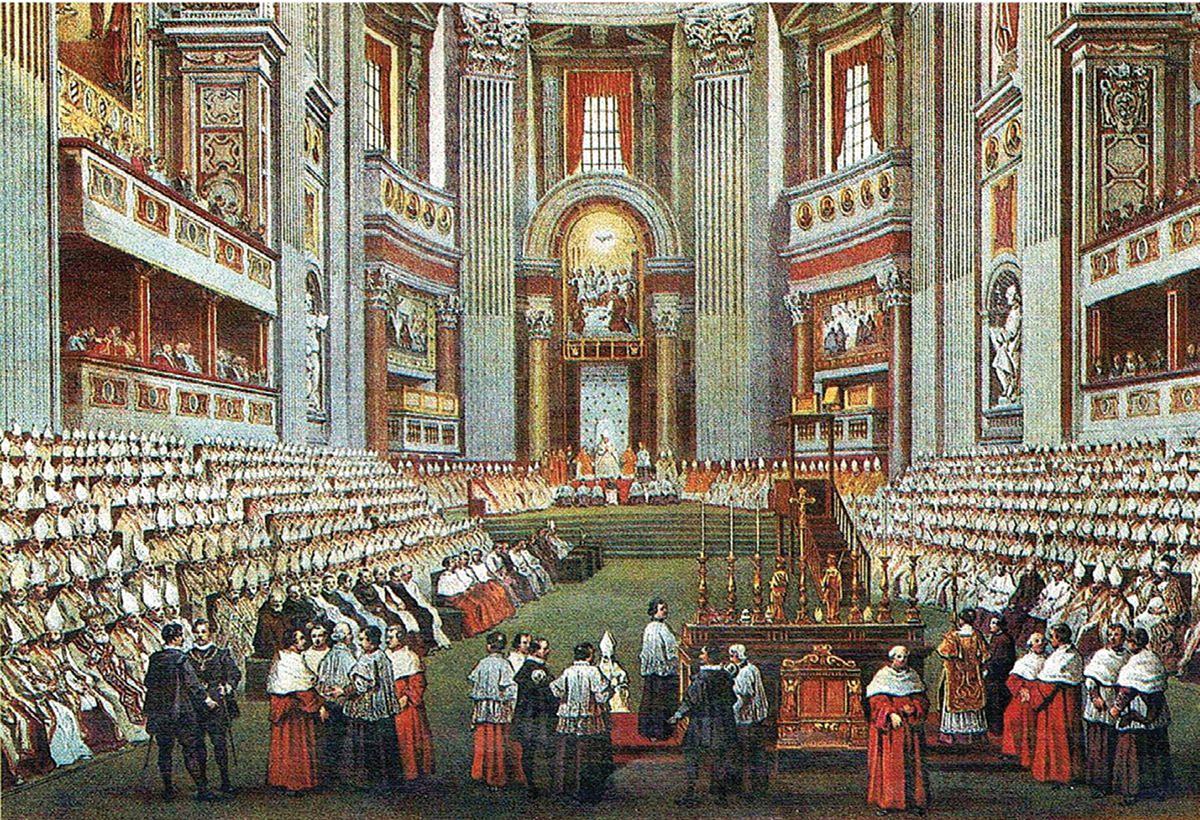
First Vatican Council
The First Ecumenical Council of the Vatican, commonly known as the First Vatican Council or Vatican I, was the 20th ecumenical council of the Catholic Church, held three centuries after the preceding Council of Trent which was adjourned in 1563. The council was convoked by Pope Pius IX on 29 June 1868, under the rising threat of the Kingdom of Italy encroaching on the Papal States. It opened on 8 December 1869 and was adjourned on 20 September 1870 after the Italian Capture of Rome. Its best-known decision is its definition of papal infallibility.[1][2]
First Vatican Council
The council's main purpose was to clarify Catholic doctrine in response to the rising influence of the modern philosophical trends of the 19th century. In the Dogmatic Constitution on the Catholic Faith (Dei Filius), the council condemned what it considered the errors of rationalism, anarchism, communism, socialism, liberalism, materialism, modernism, naturalism, pantheism, and secularism.[3]
Its other concern was the doctrine of the primacy (supremacy) and infallibility of the Bishop of Rome (the Pope),[4] which it defined in the First Dogmatic Constitution on the Church of Christ (Pastor aeternus).[5]
Background[edit]
As early as late 1864, Pope Pius IX had commissioned the cardinals resident in Rome to tender him their opinions as to the advisability of a council. The majority pronounced in favour of the scheme, dissenting voices being rare. After March 1865, the convocation of the council was no longer in doubt. Special bulls were reportedly issued with invitations to Eastern Orthodox and Protestant clerics as well as to other non-Catholics, but apparently none accepted the invitations.[6]
The council was summoned by the pope by a bull on 29 June 1868.[7] The first session was held in St. Peter's Basilica on 8 December 1869.[8] Preliminary sessions dealt with general administrative matters and committee assignments. Bishop Bernard John McQuaid complained of rainy weather, inadequate heating facilities, and boredom.[9] Bishop James Roosevelt Bayley of Newark, New Jersey, noted the high prices in Rome.[9] When Lord Houghton asked Cardinal Manning what had been going on, he answered: "Well, we meet, and we look at one another, and then we talk a little, but when we want to know what we have been doing, we read The Times."[10]
Unlike the five earlier general councils held in Rome, which met in the Lateran Basilica and are known as Lateran councils, it met in Saint Peter's Basilica in the Vatican, hence its name.